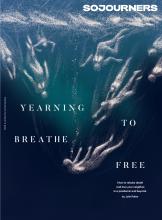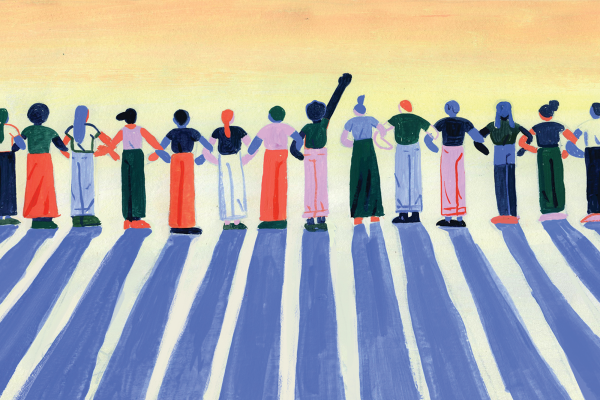A WHITE COP’S knee on the neck of a Black man revealed the old and ongoing pandemic underneath the current pandemic. The coronavirus had already laid bare the systems of racial injustice that accelerate the spread of sickness and death among people of color—the fundamental racial disparities in health care, economics, housing, education, and every other institution in America. Structural racism was exposed as a precondition for getting and dying from COVID-19; white supremacy is the virus that has made America’s soul sick for 400 years and continues to kill Black people.
Over the last weekend in May, including Pentecost Sunday, Sojourners helped organize faith communities to lament the first 100,000 COVID dead in this country. We were joined by Muslim and Jewish brothers and sisters in their services, and we helped unite Christian families across all our divisions—mainline Protestant, evangelical, and Pentecostal, Catholic, Black, Hispanic, Asian American, and Native American Christian leaders and their congregations—in honoring and memorializing those who died from the virus in only three months, many of them separated from their loved ones. On June 1, we were joined by mayors from more than 60 cities who, with interfaith clergy, announced a Day of Mourning and Lament.
Read the Full Article

